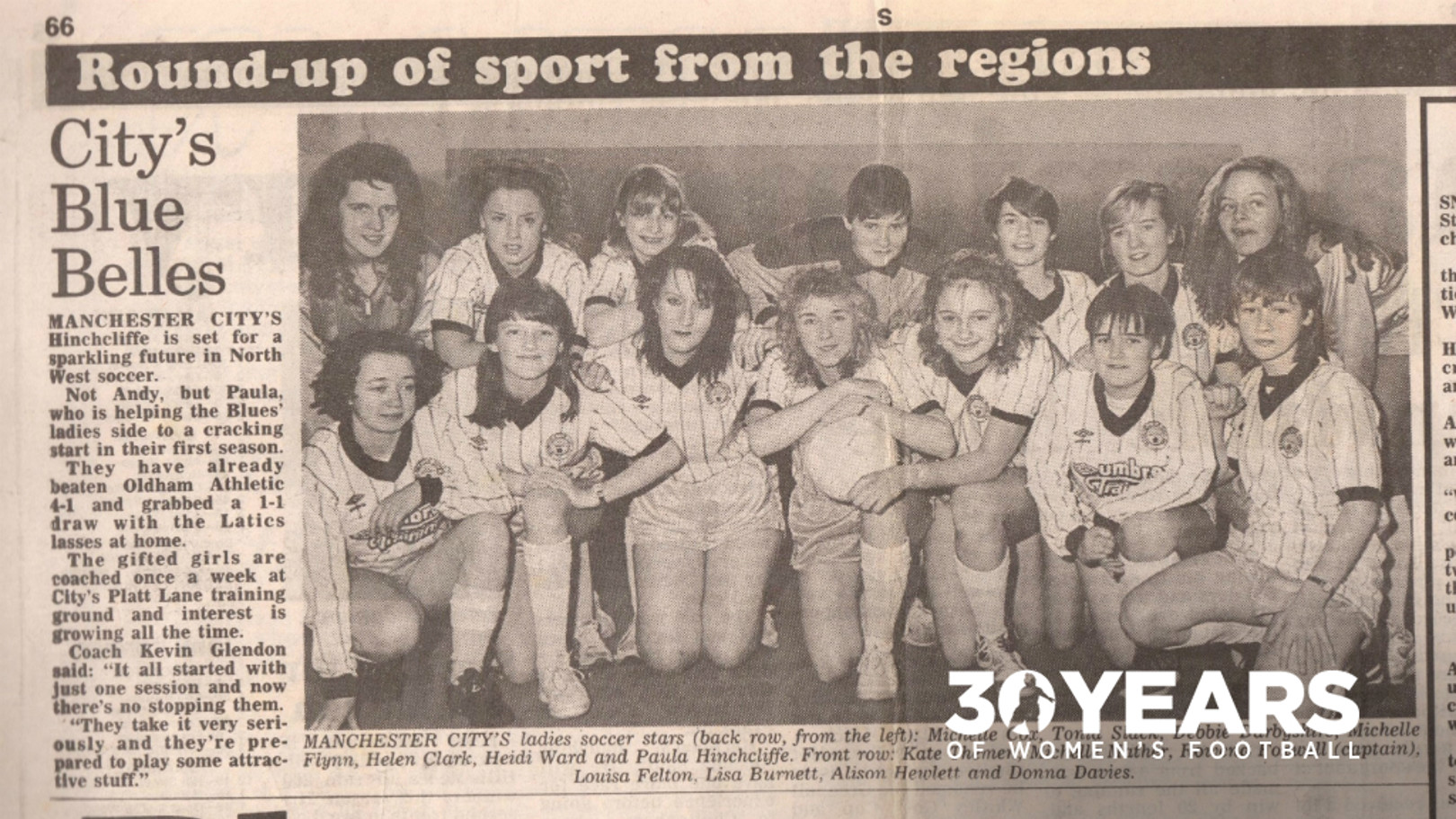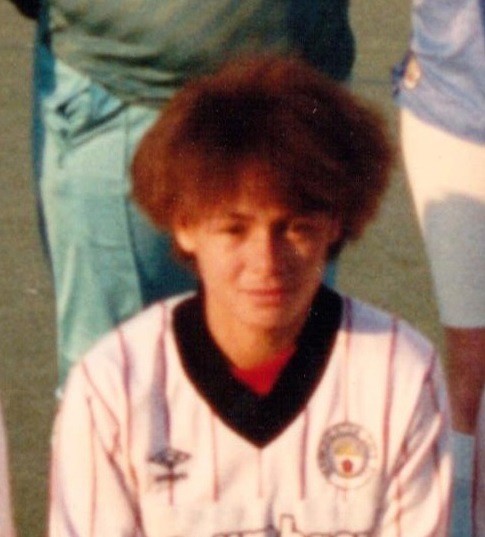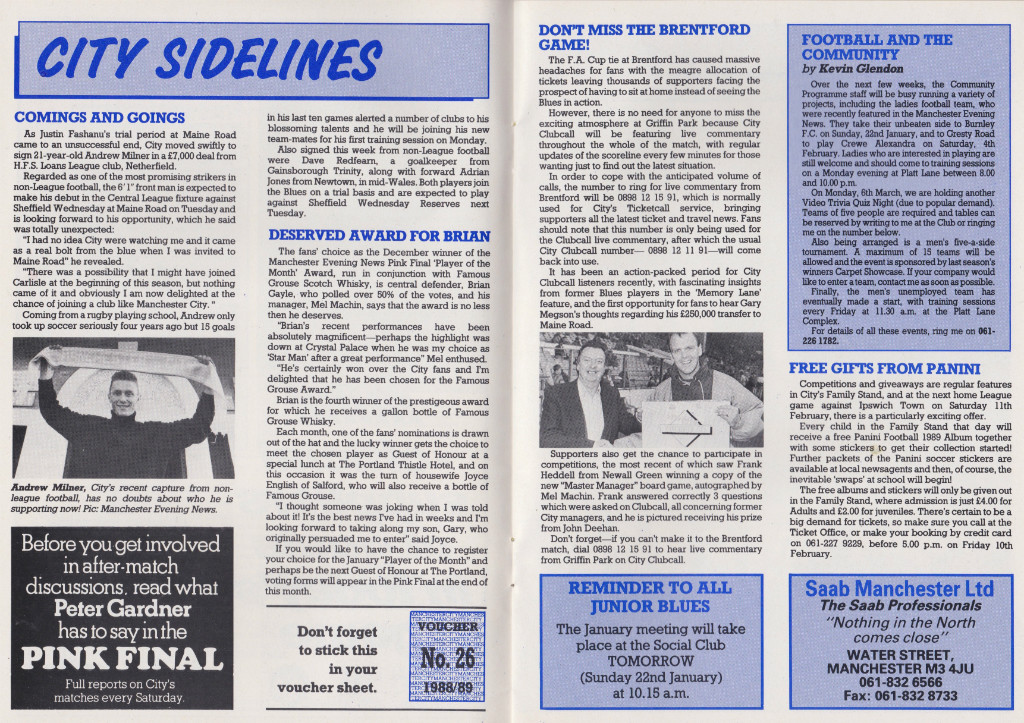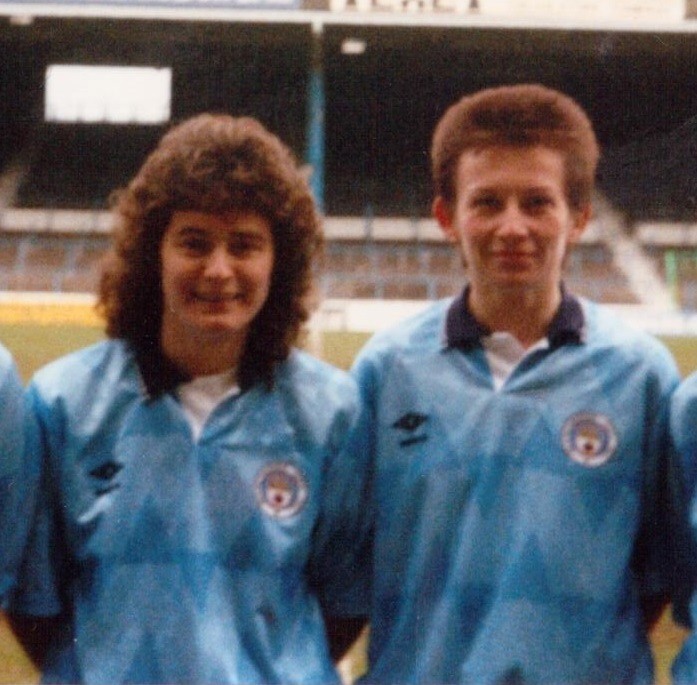City’s women’s team has a long and distinguished history and was established as a City In The Community (CITC) initiative in 1988.
At that time Neil Mather, working for CITC, organised a women only five-a-side tournament based on similar competitions they had organised for local businesses. The first competition was won by a team called Szererlmey Restoration who beat the Midland Bank following an exciting penalty shoot-out.
Several tournament players discussed with Neil the opportunities – or lack of them in some cases – for women who wanted to play on a regular basis.
READ: Fab four keeps City in title hunt
WATCH: Match highlights | Liverpool 0-3 City
FEATURE: Tessa Wullaert | Fighting for ‘girl power’
The competition had been successful and Neil considered expanding CITC’s commitment to women’s football. He formally suggested the setting up of a women’s team under the control of CITC and approval was given by the Manchester City senior management.
The first published mention of the idea came in a newspaper article on 16 September 1988 which discussed the five-a-side tournament.
Various appeals and practice sessions occurred in October and November, with 33 women and girls at the first session and 70 turning up for the second. The club, delighted with the interest generated, organised its inaugural game to take place at Boundary Park against Oldham Athletic Ladies on 27 November 1988.
The first goal scorer was Donna Haynes, who also scored City’s third in a 4-1 victory, while former Redstar midfielder Heidi Ward also netted twice. The team comprised of a number of experienced players and many were well known in women’s football at the time after playing regularly for existing North West Women’s Regional Football League sides such as Chorley, Redstar, Wigan and Woodley Ladies. Others were relative novices, attracted to the team due to their support of the City men’s side.
The progress of the team was reported regularly in the MCFC match programme during the 1988-89 season, with Neil Mather, his coaching team and the players themselves, working tirelessly to promote the club and women’s football in general. Neil met with the Women’s FA, at the time based in Manchester’s Corn Exchange, and they were supportive, helping the club join the North West League Second Division in 1989. They also perceived City as a pioneering club.
Linda Whitehead, WFA secretary, publicly praised the club in 1990: “Manchester City, one of the first professional Football League clubs to form a women’s team and affiliate to the WFA, have worked hard over the last 18 months to promote the club and women’s football and we are extremely grateful for their support.”
It is worth noting that by January 1990, 14 Football League clubs had set up women’s teams affiliated to the WFA, and back in 1988 some reports claimed City were the fourth team, after Millwall, Bradford and Hull, to set up a female team. This point is often forgotten today when some in the game talk of the history and heritage of more successful clubs.
Under the original title of Manchester City Ladies Football Club, the women’s side joined the North West League Second Division in 1989.
They ended their first league campaign fourth, narrowly missing out on promotion but had already attracted national attention with various TV features including a popular appearance on the children’s show WAC90. That feature included interviews with first team players and was used to encourage girls and young women to take up the game.
The club participated in tournaments, including one at another relatively new club Arsenal Ladies, and Neil Mather organised friendly games, which often tied in with the male first team fixtures such as against Brentford prior to a men’s FA Cup tie there and against Bradford City on the morning of the men’s promotion game in 1989.
City Ladies were viewed positively by CITC and the main club at the time, playing and training at City’s then first team training complex at Platt Lane, although they later found a more suitable venue for league games. The parent club provided kit initially, and first team star and Scottish international Colin Hendry became the women’s club’s president in March 1990.
He had watched the team defeat the leading side in the region, St. Helens, 3-1 in a cup competition. At the time, Hendry commented: “I hope that by becoming president, it will encourage more publicity for women’s football.”
Former City and Burnley midfielder Kevin Glendon was the club’s first secretary, followed by goalkeeper Alex Williams in 1990.
Articles appeared in the programme and in newspapers, and the team was used to demonstrate how football clubs were moving away from their 1970s/80s image of a male dominated environment, leading to an appearance on the Granada TV documentary series World In Action.
Like most women’s clubs of that era, the team was supported at each match by a dedicated group of supporters that included parents, husbands, partners, children and friends.
Leading striker Donna Haynes commented in 1990: “My boyfriend never misses a game. I want to get to the top and he supports me. Women can be just as good as men, and we can’t wait to prove it.”
That year two of the club’s players, Joni Davies and Rachel O’Shaughnessy, were selected for the Welsh squad. Of the original City squad, Rhoda Taylor, Gail Redston (formerly Rothwell) and Lesley Wright remained involved for many years.
The team had many ups and downs over the years that followed and was typical of many clubs before the advent of professionalism. The women who played for Manchester City and their coaching staff worked tirelessly to promote the club and the Blues enjoyed several prominent successes and experienced many trials and tribulations along the way.
Gary James is a Honorary Research Fellow at De Montfort University. His current project focuses on Manchester City’s women’s team and he is keen to interview former players, coaches and management from every era of the Club’s existence. You can contact him via twitter: @garyjameswriter Facebook.com/garyjames4









